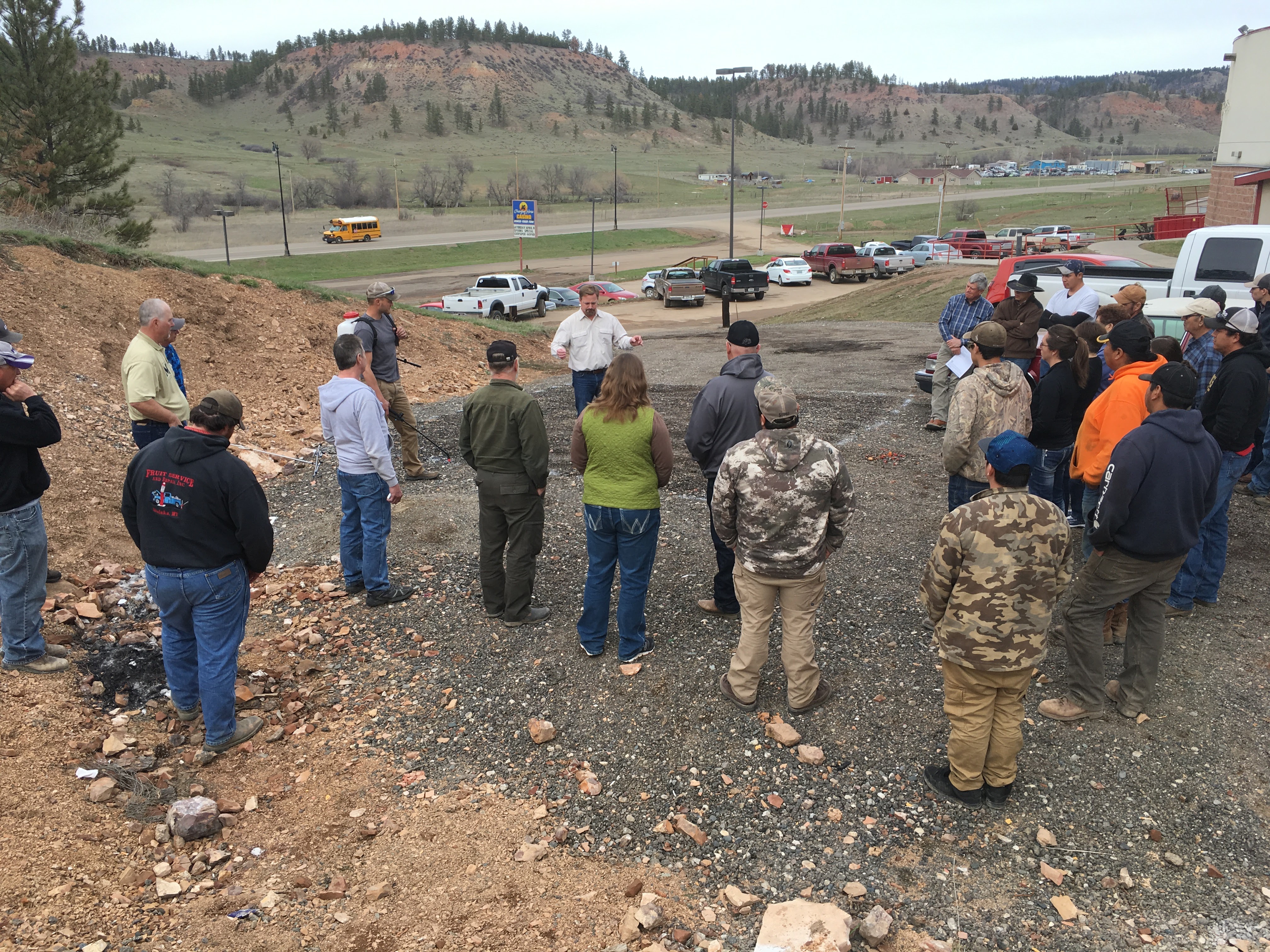Pesticide News - March 17, 2025
Upcoming Changes to Montana Private Applicator Certification and Training
Amy Bowser, MSU Extension Pesticide Education Technician, and Cecil Tharp, MSU Extension Pesticide Education Specialist
Figure 1. Private Applicator Initial Training at Crow Agency (Photo by A. Bowser, 2017)
The United States Environmental Protection Agency (EPA) has increased standards of certification and training of pesticide applicators in the US to improve safety and decrease risk. These changes are impacting all pesticide license holders in Montana starting January 2026, with changes to the Montana Private Applicator Program detailed below. For more information on changes to the Montana commercial, non-commercial and government pesticide licenses please view the January 2025 Montana Department of Agriculture (MDA) Pesticide Training Newsletter.
Private Applicator Certification
Montana private applicators who hold a valid license in January 2026 will be grandfathered into the Private Farm General Permit for Agricultural Pest Control (referred to as the private applicator permit) and will follow the existing five-year recertification cycle.
Certification of private applicators after January 2026 will have the same options available now including an exam or non-test option in the form of an Initial Private Applicator Training. Initial Private Applicator Trainings will be increased from seven hours of instruction to eight hours with added and revised topics.
Categories
Starting January 2026 applicators who hold a valid private applicator permit and apply pesticides in the following manners will need to obtain permit categories to buy and apply these pesticides. Categories will follow the same five-year recertification cycles as the private applicator general permit. Each category can be recertified by attaining three continuing education credits by the permit expiration date or by taking a closed book exam during the last year of the cycle. Only private applicators with active existing sub-categories in January 2026 in aquatic pest control, M-44 control, or 1080 livestock collar control will be grandfathered into having a category associated with their Private Farm General Permit.
Private Aquatic Pest Control
This category is for applicators who apply restricted use pesticides (RUPs) to standing or running water. This is an existing sub-category. Applicators looking to obtain this category will need to purchase the relevant manual and pass an open-book exam at an MSU Extension office.
Private Farm Aerial Pest Control
This category is for applicators who apply RUPs by aircraft or drone or unmanned aerial vehicles. Applicators looking to obtain this category will need to purchase the relevant manual and pass an open-book exam at an MSU Extension office.
Private Non-Soil Fumigation
This category is for applicators who apply restricted use fumigants to agricultural structures or burrows on agricultural land to manage insects or rodents. Applicators looking to obtain this category will need to purchase the relevant manual and pass an open-book exam at an MSU Extension office.
Private Farm M-44 Sodium Cyanide Control
This category is for applicators who apply or use sodium cyanide in mechanical ejection devices to control predators. Applicators looking to obtain this category will need to purchase the relevant manual and pass a closed book exam proctored by the MDA. This category requires additional training with the MDA. This is an existing sub-category.
Private Farm 1080 Livestock Collar Control
This category is for applicators who use sodium fluoroacetate in protective collars to control predators. Applicators looking to obtain this category will need to purchase the relevant manual and pass a closed book exam proctored by the MDA. This category requires additional training with the MDA. This is an existing sub-category.
License Fees
License fees for private applicators remain the same at $12 per year or $60 per five-year recertification cycle. Added categories do not have an associated fee.
Minimum Age
To hold a private applicator permit in Montana, applicators must be a minimum of 18 years old. An applicator may be a minimum of 16 years old to apply pesticides under the supervision of a family member who holds an active private applicator permit. This exception does not apply if the RUP is a fumigant, sodium cyanide, sodium fluoroacetate, or applied aerially. In addition, the private applicator must train all supervised applicators annually, including family members.
Supervising Applicators Under a Private Applicator Permit
Noncertified applicators, including employees and family members, working under the supervision of a certified private applicator must meet specific requirements, and be trained annually by a certified trainer. Records must be maintained regarding training for at least five years. It should be noted that private applicators may also supervise active licensed applicators without the need of additional training (i.e. MT pesticide license, out of state pesticide license). When supervising applicators the certifying applicator must provide safe working conditions, access to the label and be in communication with the supervised applicator.
MSU PEP recommends the certified private applicator presents the Worker Protection Standard (WPS) Agricultural Handler training to noncertified applicators they are supervising to meet the annual training requirement. This 38-minute video is available online through the Pesticide Education Resource Council (PERC).
What Should Montana Private Applicators Do Now?
Certified private applicators should take the normal steps to keep their pesticide license active by attending events for continuing education credits. Private applicators who have determined they will need a category should keep an eye out for additional information regarding changes and materials. Applicators will need to contact their local PAT Coordinator or MSU PEP about purchasing the manuals they will need in order to study for the category tests available after January 1, 2026. The categories will need to be obtained prior to applying the pesticides associated with a category.
For More Information
For more information on these changes please contact Cecil Tharp, Pesticide Education Specialist (406-994-5067, [email protected]) or Amy Bowser, Pesticide Education Technician (406-994-5178, [email protected]) with the MSU Extension Pesticide Education Program.

